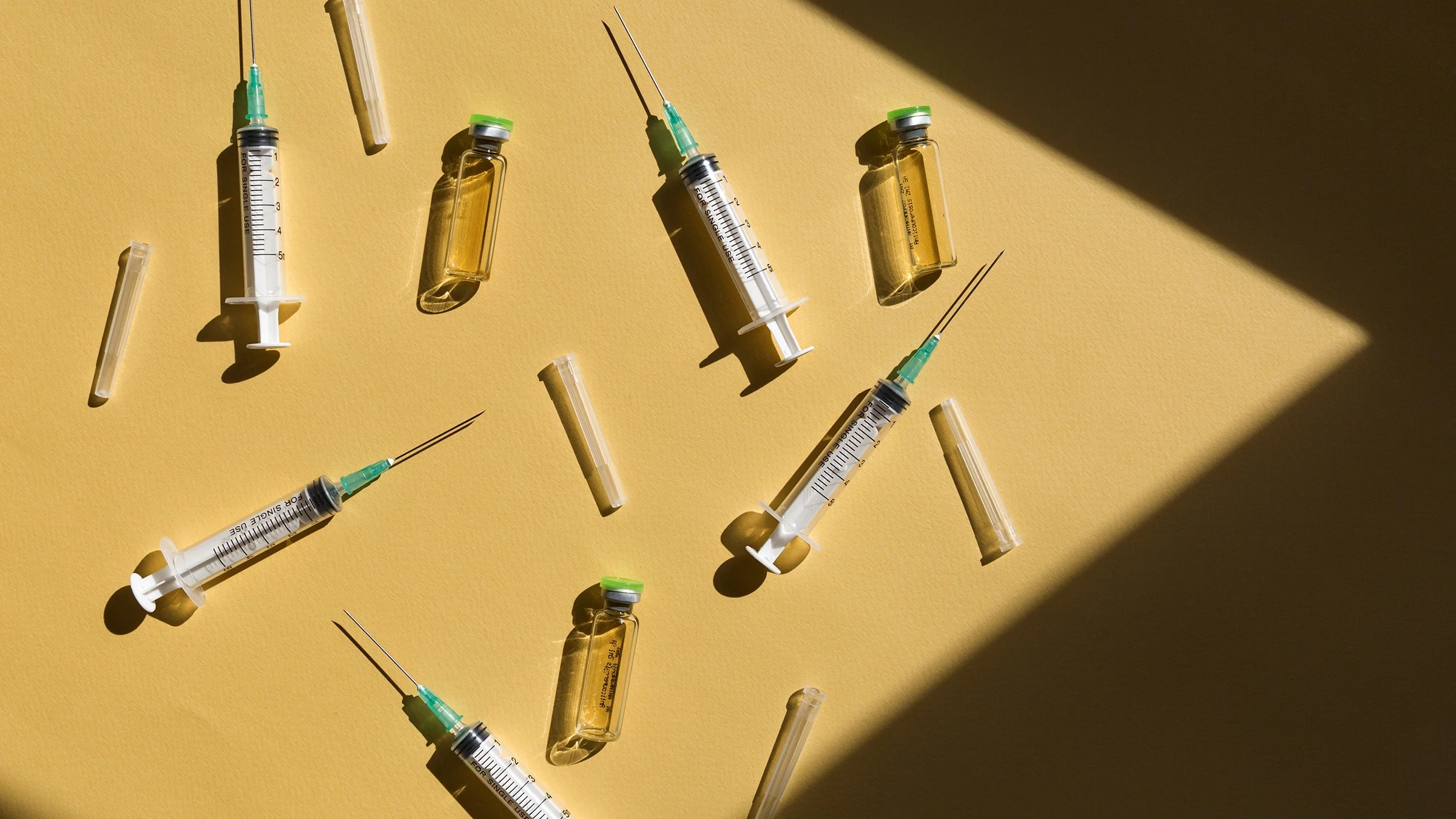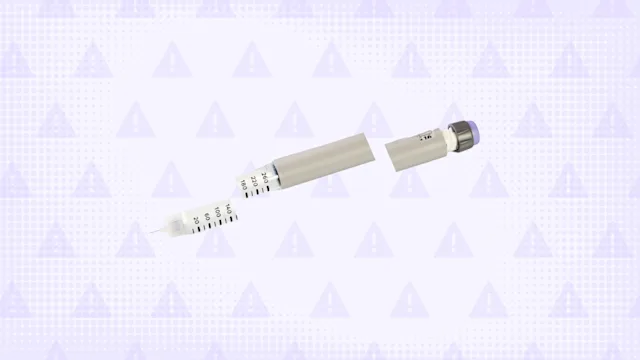Key takeaways:
The FDA has approved over 30 biosimilars since 2015. This includes five approvals in 2021.
The first interchangeable biosimilar was approved in 2021. It was also the first insulin biosimilar to go through the biosimilar approval pathway.
There were several other biosimilar “firsts” in 2021. This includes the first interchangeable biosimilar for Humira (adalimumab) and the first biosimilar eye product.
Save on related medications
Biosimilar approvals are important because they give people lower-cost options in treating many complex health conditions. That’s because biologics — medications derived from living organisms — are some of the most expensive therapies available today. Biosimilars are highly similar, yet less expensive, versions of biologics.
Since 2015, the FDA has approved over 30 biosimilars. And while some years have had more approvals than others, 2021 was a year of many “firsts.” This includes the first interchangeable biosimilar of Lantus (insulin glargine), a more expensive brand-name insulin product.
Last year, the FDA approved five biosimilars. These include first-time approvals, as well as new interchangeable designations. Let’s review why they’re important and what’s in store for 2022.
What biosimilars were approved in 2021?
The FDA approved several new biosimilars in 2021. These include injectable medications used to treat eye conditions, diabetes, and autoimmune disorders.
Byooviz
In September 2021, the FDA approved Byooviz (ranibizumab-nuna) as the first biosimilar eye product. It’s a biosimilar to Lucentis (ranibizumab).
Byooviz is an injection approved to treat three different eye conditions. These include wet age-related macular degeneration (AMD), retinal vein occlusion (RVO), and myopic choroidal neovascularization (CNV). They’re all caused by damage in the back of the eye (an area called the macula).
According to the manufacturer, it won’t be available in the U.S. before June 2022. The manufacturer has also yet to announce cost information. But it’ll likely have a lower price than Lucentis. Monthly Lucentis injections cost around $2,000 each.
Rezvoglar
In December 2021, the FDA approved Rezvoglar (insulin glargine-aglr). It’s the second biosimilar to Lantus. An official launch date has yet to be announced.
Rezvoglar is an injectable long-acting insulin that helps control blood sugar in people with diabetes. It’s approved for use in adults and children with Type 1 diabetes, and for adults with Type 2 diabetes.
The price of Rezvoglar hasn’t been announced yet. But it’s expected to be less expensive than Lantus. The list price for Lantus is about $425 for five injection pens and $280 for one 10 mL vial.
Yusimry
In December 2021, the FDA approved Yusimry (adalimumab-aqvh). It’s the seventh biosimilar to Humira (adalimumab). But because of Humira’s patent protection, it’s expected to launch in the U.S. after July 2023.
Yusimry is an injectable tumor necrosis factor alpha (TNF-alpha) inhibitor. It’s approved to treat many different autoimmune conditions, including:
Juvenile idiopathic arthritis
Humira is one of the most expensive popular brand-name drugs in the U.S. It’s average retail price is $9,000 or higher. And while Yusimry’s price isn’t available right now, it's expected to launch with several other lower-cost Humira biosimilars in 2023.
What interchangeable biosimilars were approved in 2021?
The FDA also approved the first interchangeable biosimilars in 2021. Interchangeable biosimilars need to meet additional requirements to receive this designation. This designation means that you can switch back and forth between a biosimilar and its reference biologic without issues.
Interchangeable biosimilars can be substituted more easily if the reference biologic is prescribed. In the other words, your pharmacist may be able to make the switch to a biosimilar without contacting your healthcare provider first. This is often done to save you money.
Semglee
In July 2021, Semglee (Insulin glargine-yfgn) made history by becoming the first FDA-approved interchangeable biosimilar. Semglee is also the first insulin product to go through the biosimilar approval pathway. That’s because insulin wasn’t officially considered a biologic until March 2020. Only biologic medications are eligible for the FDA’s biosimilar approval pathway.
Like Rezvoglar, Semglee is an injectable long-acting insulin. It’s also a biosimilar to Lantus. It’s approved for use in adults and children with Type 1 diabetes, and in adults with Type 2 diabetes.
Semglee was originally launched in the U.S. in August 2020. But it didn’t get its interchangeable status until 2021. The manufacturer launched both branded and unbranded versions of the interchangeable Semglee in late 2021.
The average retail price of one vial of Semglee is about $125. You can save as much as 13% off this price by using a free GoodRx discount.
Cyltezo
Cyltezo (adalimumab-adbm) was originally approved in 2017. It's one of seven Humira biosimilars. But it became the first and only interchangeable one in October 2021.
Like Yusimry, Cyltezo is an injectable TNF-alpha inhibitor. It’s also approved to treat the same autoimmune conditions. And it’s expected to launch in July 2023, too.
Cyltezo’s cost hasn’t been released yet. But it should also be less expensive than Humira.
What biosimilars could be approved in 2022?
Biosimilar approvals have gained a lot of interest over the last few years. In fact, there are several more that we may see approved in 2022. Below are some examples of biosimilars under FDA review.
Herceptin biosimilars
Herceptin (trastuzumab) is an injectable medication used to treat several types of cancer. There are currently at least two Herceptin biosimilars that have open applications with the FDA.
Tanvex Biopharma submitted an application for their biosimilar in October 2021. Also, Sandoz and EirGenix submitted an application for their biosimilar in December 2021. It’s possible the FDA could reach a decision on these applications by late 2022.
Lucentis biosimilars
Coherus BioSciences hopes to follow the approval of Byooviz with their own Lucentis biosimilar in 2022. The company announced their application submission in early October 2021. The FDA is expected to issue a decision by August 2022.
The bottom line
Biosimilars can give people lower-cost options for treating many complex conditions. That’s because the biologics they’re based on can be very expensive. Not all biologics have biosimilars, but the FDA is working on approving more of them. This includes several biosimilar “firsts” in 2021.

Why trust our experts?


References
American Journal of Managed Care. (2021). Rezvoglar broadens insulin glargine biosimilar options.
Anton Health. (2021). FDA approves implantable Tx for AMD.
Biogen. (2021). FDA approves Samsung Bioepis and Biogen’s BYOOVIZ™ (SB11), LUCENTIS® biosimilar (ranibizumab-nuna).
Coherus. (2021). Coherus announces BLA filing for Lucentis® (ranibizumab) biosimilar candidate accepted by FDA for review.
Coherus. (2021). Coherus announces U.S. FDA approval of YUSIMRY™ (adalimumab-aqvh).
Coherus. (2021). Yusimry [package insert].
Eli Lilly and Company. (2021). Rezvoglar [package insert].
Food and Drug Administration. (n.d.). Biological product definitions.
Food and Drug Administration. (2017). Biosimilar development, review, and approval.
Food and Drug Administration. (2021). Biosimilar product information.
Food and Drug Administration. (2021). FDA approves first interchangeable biosimilar insulin product for treatment of diabetes.
Novartis. (2021). Sandoz submits Biologics License Application for proposed biosimilar trastuzumab to US FDA.
Sanofi-Aventis. (2019). Lantus pricing.
Tanvex BioPharma. (2021). FDA acceptance TX05 filing.
Viatris. (2021). Viatris and Biocon Biologics announce launch of interchangeable SEMGLEE® (insulin glargine-yfgn) injection and insulin glargine (insulin glargine-yfgn) injection.

















